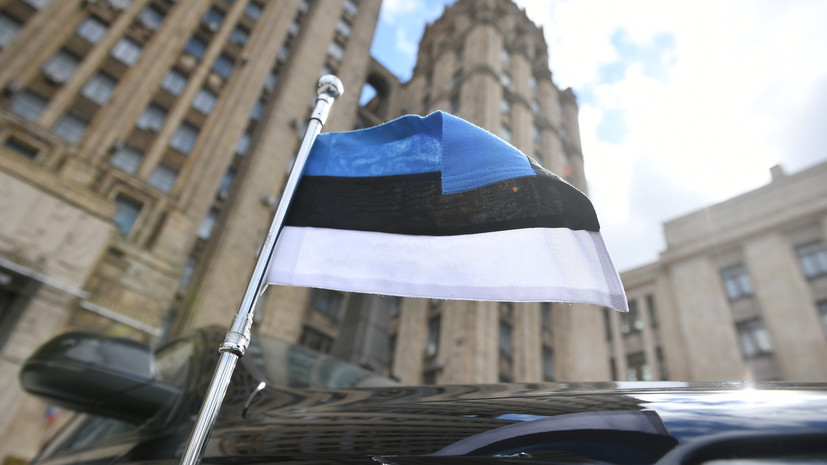The Russian Foreign Ministry announced retaliatory measures against the expulsion of Russian diplomats by Latvia, Lithuania and Estonia, as well as Slovakia.
The ambassadors of these states were summoned to the Foreign Ministry on Wednesday, April 28.
The ministry said that within the framework of the principle of reciprocity, Moscow demanded that two employees of the Lithuanian embassy, as well as one employee of the diplomatic missions of Latvia and Estonia, leave the territory of Russia within a week.
The leadership of the diplomatic missions of these countries was declared "a strong protest in connection with the provocative, unjustified actions" on the expulsion of employees of the Russian embassies.
“It is indicated that Vilnius, Riga and Tallinn continue to pursue an openly hostile course towards our country, hiding in this case with pseudo-solidarity with the indiscriminate actions of the Czech Republic towards Russia,” the Foreign Ministry added.
On April 23, the foreign ministries of Lithuania, Latvia and Estonia announced the expulsion of Russian diplomats in solidarity with the Czech Republic.
Riga and Tallinn decided to send one employee of the Russian embassies, Vilnius - two.
Also, the Russian Foreign Ministry declared three employees of the Slovak Embassy in Moscow persona non grata.
As explained in the department, this step was taken in response to the unjustified expulsion of three employees of the Russian diplomatic mission in Bratislava on "absurd and far-fetched charges of illegal activity."
“The decision of the Slovak authorities to show false solidarity with the Czech Republic in its provocative anti-Russian campaign damages the traditionally friendly Russian-Slovak relations and constructive bilateral cooperation,” the Slovak ambassador said at the Foreign Ministry.
Recall that on April 17, Czech Prime Minister Andrei Babis said that Russia was allegedly involved in the explosions at ammunition depots in Vrbetica in 2014.
Against the background of Babis's statement, Prague announced the decision to expel 18 Russian diplomats from the country.
The Russian Foreign Ministry responded with a resolute protest to the Czech Republic and declared 20 employees of the Czech diplomatic mission in Moscow persona non grata.
Following the Czech Republic, decisions on the expulsion of Russian diplomats were made by a number of other European states; the Russian Foreign Ministry responded to these steps on the principle of reciprocity.
Russian Foreign Ministry spokeswoman Maria Zakharova later said that the Czech side "embarked on the path of destroying relations."
Claims from Bulgaria
Also on Wednesday, April 28, the Bulgarian prosecutor's office announced that it suspects six Russians of involvement in four explosions that occurred at arms depots and factories in the country between 2011 and 2020.
The prosecutor's office mentioned expert opinions, according to which there are similarities in the four explosions examined.
The ministry said in a statement that six Russians, who allegedly could be involved in the explosions, were living in Bulgaria at the time.
Along with this, it is argued that the purpose of the explosions was to interfere with the supply of military products to Georgia and Ukraine.
Sofia also said it is working with Prague to establish a link between the explosions in Bulgaria and the explosions in the Czech Republic in 2014.
At the same time, the Russian Foreign Ministry previously drew attention to media reports about the storage of anti-personnel mines in warehouses in the Czech Vrbetica, bypassing the Convention on the Prohibition of Anti-Personnel Mines (KZPM).
The ministry noted that this information casts doubt on the good faith fulfillment of Prague's obligations under the KPPM.
Russian Foreign Ministry spokeswoman Maria Zakharova also said that similar questions arise with Bulgaria, whose citizen the media ascribe possession of weapons stored in a warehouse, and Ukraine, which is called a potential recipient of this equipment.
Commenting on the accusations of the Bulgarian side, Russian Foreign Minister Sergei Lavrov pointed out the absurdity of such statements: “It's good that we haven't killed Archduke Ferdinand yet, but apparently, this is going to happen.”
Sergei Lavrov on the absurdity of recent accusations against Russia
The minister expressed surprise at the fact that the talk about the events of the past ten years in Bulgaria came “suddenly now, after the Czech Republic realized the events of 2014”.
“I also decided to outperform the Czechs and look much deeper into the historical retrospective,” Lavrov said.
"Or they knew all this time what was happening, but for some reason they did not make it public."

